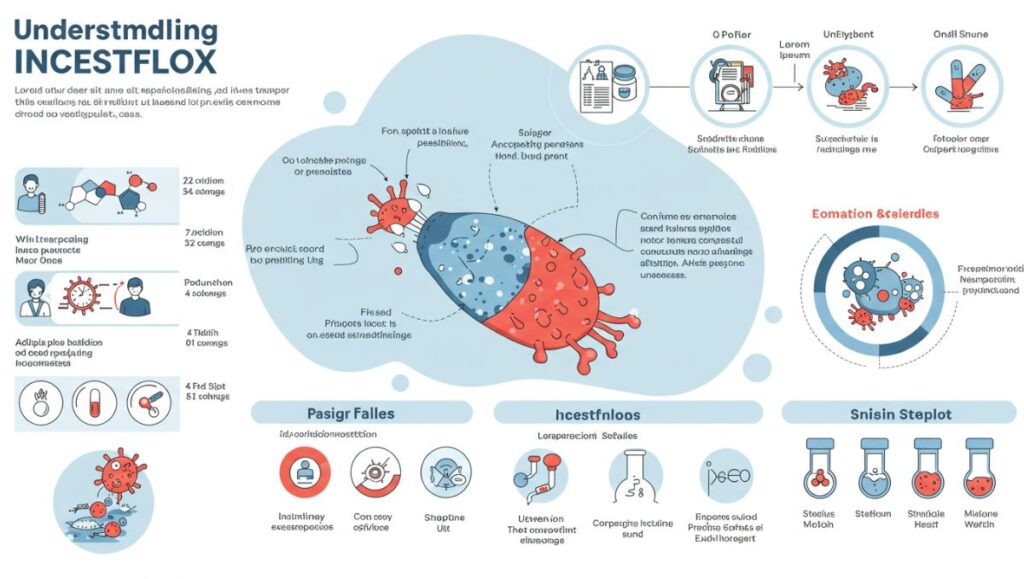In recent times, the term incestflox has gained attention across online discussions, digital forums, and academic debates. While the word may seem unfamiliar or even controversial at first glance, it represents an evolving topic that touches upon cultural, technological, and ethical dimensions. Understanding incestflox requires looking at its origins, the context in which it is being discussed, and its potential impact on society and digital spaces.
This article takes a deep dive into incestflox, examining its meaning, the online communities that use it, and the debates surrounding it. By exploring the subject from multiple angles, readers can gain a clearer understanding of why this term has surfaced and what it could signify in the near future.
What Does Incestflox Mean?
The definition of incestflox is still evolving, and in many ways, it reflects how internet culture generates new words and ideas. Broadly, incestflox appears as a fusion of two distinct terms, combining sensitive connotations with the suffix -flox, which is often associated with online community names, trends, or fandoms.
The meaning of incestflox varies depending on who uses it:
-
For some, it is a symbolic or metaphorical term used in discussions about taboo topics.
-
For others, incestflox may be connected to digital storytelling, online forums, or roleplay communities exploring difficult themes.
-
Academic and research-oriented groups sometimes reference incestflox in the context of cultural studies, examining how internet culture normalizes or problematizes certain subjects.
The Origin of Incestflox in Online Culture
The internet is a powerful engine for creating new language. Terms like incestflox often emerge in small online groups before spreading to larger platforms. These origins can usually be traced back to:
-
Niche Communities – Subforums or chat groups where members develop their own terminology.
-
Fandom Spaces – Creative groups that remix language to define fictional or roleplay dynamics.
-
Digital Activism and Awareness – Discussions about difficult social topics that later adopt coined terms for clarity.
In this context, incestflox represents more than just a word—it reflects how modern internet culture shapes the way we communicate about sensitive or complex ideas.
Why Incestflox is Gaining Attention
Several reasons explain why incestflox is being talked about more frequently:
-
Increased Awareness – As conversations about taboos and difficult topics grow online, new terms are created to categorize them.
-
Academic Curiosity – Researchers of digital culture analyze emerging words like incestflox to better understand online interactions.
-
Controversy and Debate – Because of its sensitive undertones, incestflox sparks discussions about ethics, limits of free expression, and online safety.
The attention is not always positive, but it demonstrates the powerful role language plays in shaping online dialogue.
Ethical Considerations Surrounding Incestflox
Whenever sensitive terms like incestflox arise, ethical questions follow. These include:
-
Should such terminology be normalized in online spaces?
-
How can communities balance free expression with responsible communication?
-
What role do platforms play in moderating sensitive discussions?
Some argue that incestflox is a harmless online construct used primarily in fictional or roleplay contexts. Others highlight the potential risks of normalizing such words without acknowledging their deeper implications.
Ultimately, the ethical debate around incestflox shows how language can influence behavior, perception, and cultural attitudes.
Incest flox in Digital Storytelling
One of the key areas where incest flox has emerged is within digital storytelling and online fiction. Writers and roleplay enthusiasts sometimes use the term as a shorthand to explore narratives that challenge conventional boundaries. While not universally accepted, its presence in creative spaces highlights:
-
The experimental nature of internet storytelling
-
The blending of taboo themes with fictional expression
-
The importance of context when interpreting terminology
Here, incest flox functions more as a tool for world-building or imaginative exploration rather than a direct reflection of reality.
Academic Perspectives on Incestflox
Universities and cultural research centers have shown growing interest in the study of digital linguistics. Words like incest flox are not just random inventions; they provide insight into:
-
How communities form identity online
-
How taboos evolve with technology
-
How language adapts to new cultural needs
For academics, incest flox is an opportunity to analyze how the internet redefines conversations that were once hidden or marginalized.
Online Safety and Incest flox Discussions
Since incestflox touches on sensitive ground, online safety becomes a major concern. Platforms often need to decide how to handle emerging terminology like this, ensuring that conversations:
-
Protect minors from exposure to harmful content.
-
Distinguish between fictional or metaphorical uses and real-world risks.
-
Create guidelines for healthy discourse without stifling creativity.
Safety, in this case, doesn’t mean erasing the term but understanding its use and placing it within a responsible framework.
Cultural Reactions to Incest flox
Different communities react to incestflox in different ways:
-
Supportive groups see it as harmless or creative.
-
Critical voices argue it could normalize harmful patterns.
-
Neutral observers treat it as another example of internet wordplay.
The mixed reactions underline how language can polarize people, especially when it touches sensitive areas.
The Future of Incestflox
Like many internet-born terms, the future of incest flox is uncertain. It may evolve into:
-
A niche word used only in specific communities.
-
A subject of ongoing academic research.
-
A fading trend as online culture shifts.
Regardless of its trajectory, incest flox demonstrates the constant transformation of digital communication and how new words spark new conversations.
Conclusion
The rise of incestflox illustrates the power of online culture to invent, adapt, and circulate language. Though controversial, it offers an important case study in how internet communities explore taboos, develop new identities, and challenge traditional cultural frameworks.
By examining its meaning, origins, ethical considerations, and societal impact, we gain insight not just into incestflox itself, but into the broader way humans use language to navigate sensitive and complex issues in the digital age.






